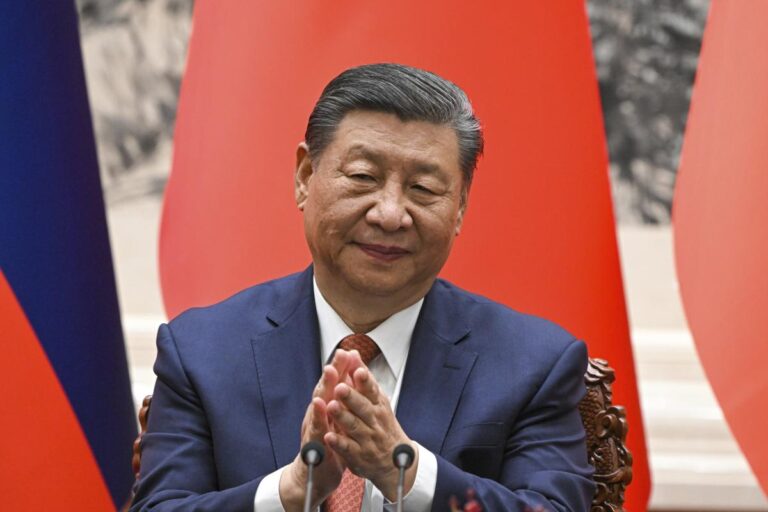HONG KONG (AP) — China’s newest artificial intelligence chatbot was trained on President Xi Jinping’s doctrine, a stark reminder of the ideological parameters that China’s AI model must follow.
China’s Cyberspace Academy earlier this week launched a chatbot trained on Xi Jinping Thought, a doctrine that promotes “socialism with Chinese characteristics.”
The chatbot was trained on seven databases, six of which were primarily related to information technology and provided by China’s internet watchdog, the Cyberspace Administration of China (CAC).
According to a CAC magazine post on the AI model on the WeChat messaging service, Xi Jinping Thought was the seventh database on which the chatbot was trained.
The Xi-trained large-scale language model is the latest effort by authorities to spread the ideology and thoughts of the Chinese leader. Students are required to take classes on Xi Jinping Thought in schools, and in 2019 an app called “Xi Jinping Strong Nation Study” was also launched, allowing users to learn about and take quizzes on Xi Jinping’s ideology.
“Xi Jinping Thought” is also known as “Socialist Thought with Chinese Characteristics for a New Era” and consists of 14 principles, including ensuring the absolute power of the Communist Party of China, strengthening national security and socialist values, and improving people’s lives and welfare.
The China Cybersecurity Institute, which launched the AI model for its own internal use, said the chatbot was primarily created to demonstrate developments and practical applications in cybersecurity and IT research.
According to a WeChat post from CAC Magazine, the AI model will be able to generate report summaries on topics such as AI development and productivity.
“Users can choose knowledge bases across different categories for intelligent question answering. The expertise and authority of the corpus ensures the expertise of the content generated,” the post reads.
The AI model will also be able to generate reports, summarize information, and provide translations in Chinese or English to users who have access to it.
But it’s not clear whether the chatbots trained by Xi Jinping will ever be used by the general public.
The chatbot’s announcement comes amid a fierce race between the US and China for AI supremacy.
San Francisco-based OpenAI’s generative AI model ChatGPT is widely regarded as one of the most important developments in the field, but China also has ambitions to become a global leader in AI by 2030.
China has a population of 1.4 billion and is also able to amass vast amounts of data to train systems like facial recognition and self-driving cars.
Technology companies such as Alibaba and Baidu are already deploying primarily Chinese-language AI models similar to ChatGPT for public and commercial use.
However, these AI models tend to be more restricted as they must comply with China’s strict censorship rules, meaning Chinese AI models often won’t answer politically sensitive questions.

